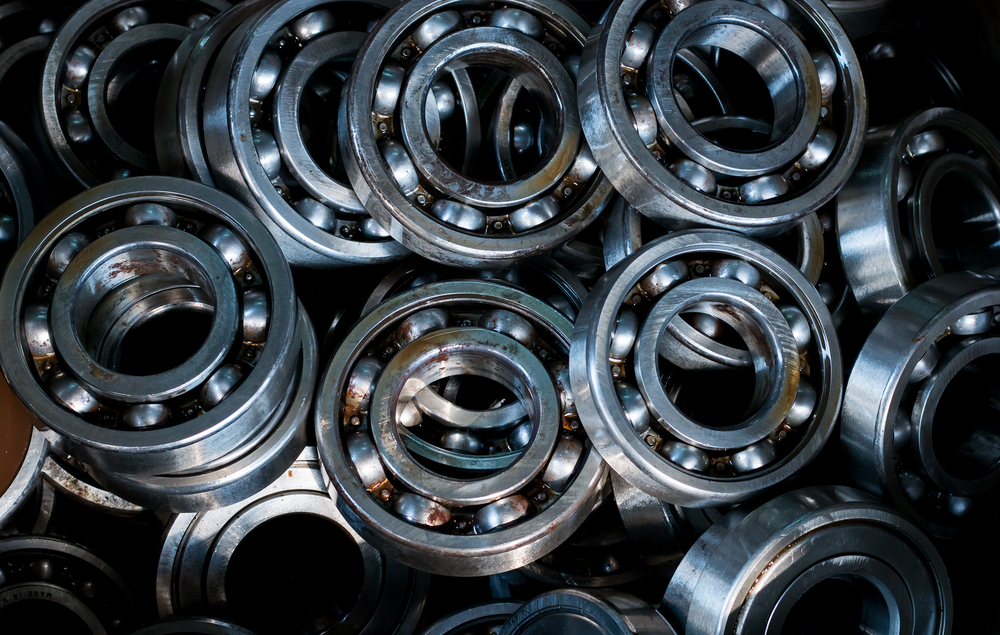
How West Texas Dust and Debris Impact Bearing Life—and How to Protect Them
June 19, 2025 1:26 pm Leave your thoughtsWest Texas is infamous for its expansive skies, cotton fields, and, notably, its dust. The region’s semiarid climate and flat terrain combine to produce a relentless assault of airborne grit, especially during harvesting seasons. These environmental conditions have serious consequences for industrial and agricultural machinery, particularly those operating in cotton gins and other processing facilities. One of the most vulnerable components in such settings is the mechanical bearing.
Mechanical bearings play a critical role in ensuring the smooth operation of rotating parts. In cotton gins and similar applications, they support high-speed rotation and must endure significant mechanical stress. However, their performance and longevity are heavily dependent on the cleanliness and stability of their environment. In West Texas, where the air is often saturated with abrasive dust and cotton debris, bearings are under constant threat of premature failure. The very soil and fibers that make the region agriculturally rich also contribute to a unique set of maintenance and reliability challenges.
Understanding Bearing Failure in Dusty Environments
Bearing failure is not an instantaneous event; it is a process that evolves through a series of stressors, many of which are exacerbated by environmental contaminants. In West Texas, airborne dust made up of fine sand, clay particles, and plant debris infiltrates machinery through even the smallest openings. Once inside, these particles cause damage in several ways.
Firstly, dust acts as an abrasive agent. As particles enter the bearing housing, they mix with lubricants and form a highly erosive slurry. Instead of reducing friction, this contaminated lubricant accelerates wear on the bearing surfaces. Over time, this leads to pitting, scoring, and material degradation.
Secondly, dust and cotton debris can compromise the sealing mechanisms designed to protect bearings. When seals are breached, not only does contamination increase, but lubrication levels can also decrease due to leakage. Without adequate lubrication, bearings generate excessive heat and suffer from metal-on-metal contact, which speeds up wear and eventual failure.
Furthermore, the combination of high-speed operation and dust accumulation causes thermal stress. Bearings that are not regularly maintained or replaced can seize up, overheat, or even disintegrate under operational loads. In cotton gin operations, where downtime is costly and harvesting windows are tight, such failures can cripple productivity and lead to extensive equipment damage.
Cotton Gin Maintenance: The First Line of Defense
Effective cotton gin maintenance is the cornerstone of preventing bearing failure in dust-heavy environments. Maintenance protocols must go beyond standard practices and be specifically tailored to handle the harsh conditions of West Texas. This includes frequent inspection, proactive lubrication, and the use of specialized components.
Regular inspection routines should include not just visual checks, but also vibration analysis and thermal imaging to detect early signs of bearing distress. In regions where West Texas dust is prevalent, daily or weekly checks during peak harvest seasons are often necessary.
Lubrication is another critical area of focus. Clean, high-quality lubricants should be used and replaced frequently. In some operations, automatic lubrication systems can help maintain consistent oil or grease levels, minimizing the opportunity for contamination. However, these systems also require careful monitoring to ensure they are not themselves compromised by dust.
Seal integrity must also be prioritized. In cotton gins, where cotton lint and husks are everywhere, seals must be rugged and tight-fitting. Many operations are now adopting double-lip or labyrinth seals, which offer better protection against fine particles. These innovations significantly extend the lifespan of mechanical bearings, provided they are installed correctly and monitored regularly.
Additionally, retrofitting older equipment with dust shields or enclosures can help keep critical components clean. While this requires upfront investment, the reduction in maintenance costs and downtime often justifies the expenditure over the long term.
Bearing Selection: Engineering for Extreme Conditions
Choosing the right bearing is another strategic defense against the detrimental effects of West Texas dust. Not all bearings are created equal, and selecting components that are engineered for harsh, dusty environments can make a substantial difference in operational lifespan.
For instance, sealed or shielded bearings offer an immediate upgrade in dust resistance. While open bearings may be sufficient in cleaner environments, they are a poor fit for cotton gin facilities in West Texas. Sealed bearings are especially useful in applications where frequent re-lubrication is not feasible.
Materials also matter. Bearings made of corrosion-resistant alloys or those with specialized coatings can better withstand exposure to contaminants and corrosive plant matter. Additionally, ceramic hybrid bearings, which combine steel races with ceramic balls, are gaining popularity in high-contaminant environments due to their superior hardness and heat resistance.
Load and speed ratings must also be considered in the context of dust exposure. Bearings that operate close to their load or speed limits are more likely to fail when contaminants are introduced. Therefore, using components with a safety margin can provide an added layer of resilience.
OEMs and maintenance professionals should work together to evaluate machinery design and operating conditions, and select mechanical bearings that provide the right combination of load capacity, sealing, and resistance to contamination. Vendor support can also be beneficial, especially when specialized bearing configurations or custom solutions are needed.
Looking Ahead: Strategies for Long-Term Reliability
Protecting mechanical bearings from the harsh realities of West Texas dust and cotton debris is not a one-time effort—it requires a holistic and evolving strategy. Beyond component selection and scheduled maintenance, operators must adopt a culture of proactive care and data-driven decision-making.
Condition monitoring technology is increasingly being used to track bearing health in real time. Sensors that measure temperature, vibration, and acoustic emissions can detect anomalies before they lead to bearing failure. This data allows maintenance teams to schedule interventions with precision, reducing the risk of unplanned downtime.
Training and workforce education also play a critical role. Maintenance personnel must be trained to recognize early warning signs of contamination, understand the nuances of cotton gin maintenance, and implement best practices consistently. When teams are informed and engaged, the likelihood of bearing failure drops significantly.
Environmental control is another emerging area of interest. While it is nearly impossible to eliminate dust in West Texas, steps can be taken to reduce its impact. This includes using air curtains, positive pressure ventilation, and enclosed machinery housings. Even simple measures like regular sweeping and vacuuming can help reduce airborne particulate levels in critical areas.
Finally, partnerships with equipment manufacturers and bearing suppliers can yield dividends in reliability. Suppliers often provide customized solutions, technical support, and even training programs that are specifically designed for environments like West Texas. These collaborations can result in better product performance, quicker issue resolution, and lower total cost of ownership.
Conclusion
While West Texas dust poses a formidable challenge to mechanical bearings—particularly in cotton gin operations—it is not insurmountable. Through thoughtful engineering, disciplined maintenance, and strategic foresight, operators can significantly extend bearing life, reduce downtime, and maintain productivity. In a region where the elements are relentless, it is this proactive and informed approach that keeps the wheels of industry turning.
Need Cotton Mill & Cotton Gin Components in Lubbock, TX?
Welcome to M.B. McKee Company, Inc. M.B. McKee Company, Inc. has been serving our local community of Lubbock since 1943. Locally owned and family operated, we provide great customer service and solutions for ongoing issues. With over 70 years of experience, our products, services, and engineering will always exceed your expectations. Our products include bearings, belts, chains, conveyor systems, gearing, lifts, motors, drives, product separation, tools, valves, and fittings. Our engineering division also provides general formulas, NEMA motor frames, elevator legs, screw and belt conveyors, lift charts, components from Baldor and Flexco, and various interchangeable parts. Contact us today to learn more about what we can do for you!
Categorised in: Mechanical Bearings
This post was written by Orlando Washington

